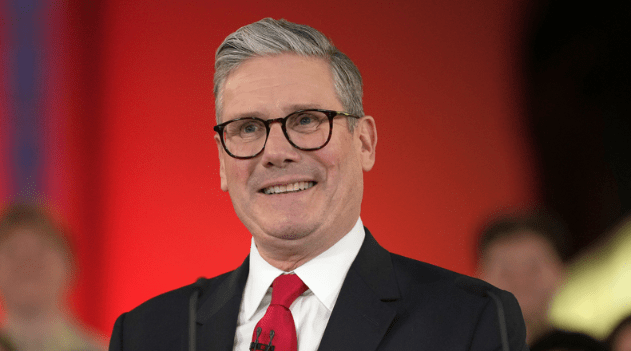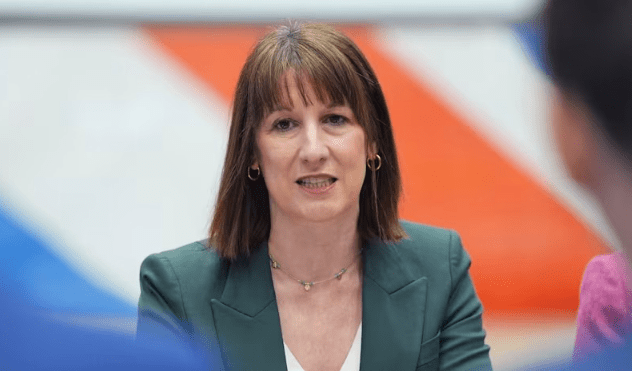In a bold step toward securing a trade pact with the United States, Chancellor Rachel Reeves has indicated the UK may significantly cut tariffs on American cars and auto parts, from 10% to just 2.5%.
The move, reportedly outlined in a document seen by The Wall Street Journal, could serve as a key bargaining chip in ongoing negotiations aimed at rekindling a UK-US trade deal under a potential second Trump presidency.
Arriving in Washington DC for the IMF Spring Meetings, Reeves remained tight-lipped about the specifics, but her tone made clear that fresh momentum is building. Speaking to US business leaders, she said she hopes “to see tariff and non-tariff barriers reduced between the UK and the US.”
This latest indication of compromise comes alongside another potential concession—reports suggesting the Labour government may delay or rethink the UK’s digital services tax, a sticking point in previous trade discussions.
Despite mounting economic pressures and a cooling UK growth outlook, Reeves is keen to play the long game. “We’re not going to rush into a deal. We want the right deal in Britain’s national interest,” she told ITN.
Time, however, is running out. A 90-day suspension on US tariffs, implemented by Donald Trump, is set to expire in early July. Without a deal in place, the UK faces the prospect of steep tariffs and spiralling inflation.
The International Monetary Fund (IMF) has warned that if Trump’s tariffs are reinstated, the UK could face the highest inflation rate in the Western world, projected at 3.1%. Its growth forecast for 2025 has already been downgraded from 1.6% to 1.1%.
Still, Reeves insists she’s under no pressure to sign prematurely. “I believe that we can secure an agreement with the United States… We’ve got to respond to [global] changes,” she said.
When asked directly whether former President Trump could be trusted, her answer was unambiguous: “Absolutely.”
She added: “There’s a good relationship between the president of the United States, Donald Trump, and our Prime Minister, Keir Starmer.”

Reeves’ three-day US trip isn’t just about slashing import duties. She’s also exploring deeper cooperation in technology and defence, pitching a broader “technology partnership” that builds on the close UK-US security relationship.
“This isn’t just about damage limitation, it’s also about what the next step is,” she said at the World Economy Summit.
Her vision includes a bilateral process to dismantle remaining trade barriers and secure mutual benefits for both economies. “There is a deal to be done that will benefit industry both in the UK and the US, and jobs in our countries as well.”
However, questions about what compromises Britain may have to make linger, particularly around food standards and digital regulations. There are concerns the UK could be pressured to allow imports such as chlorinated chicken or rethink online safety laws.
Back home, Reeves is facing intense scrutiny. With public anxiety over living costs still high, she has vowed not to hike income tax, national insurance for workers, or VAT—key manifesto pledges she insists won’t be broken.
“We’ve made that commitment in our manifesto, and we will honour the commitments that we made to the British people,” she reaffirmed.
Simultaneously, talks continue with the EU about resetting post-Brexit arrangements. One potential flashpoint—youth mobility. Reeves didn’t rule out a scheme allowing young Britons to work in Europe for up to two years, but maintained that reintroducing free movement is off the table.
“It is important that we determine who comes into our country, and those things are not up for negotiation,” she said.
In Washington, Reeves also co-chaired a key defence finance meeting with Polish Finance Minister Andrzej Domanski. She called for stronger coordination among European nations to bolster defence budgets and industrial capacity.
“The world has changed, and the UK and its European allies must step up and meet the moment,” she stressed. “Merely increasing spending is not enough… we must be strategic in where and how we invest.”
Rachel Reeves’ visit to the US signals a shift. By floating tariff cuts and exploring broader partnerships, the UK is positioning itself to strike a new trade deal that serves both strategic and economic goals. But the road ahead is lined with delicate trade-offs—from food standards to tax policy and migration.
One thing is clear: Reeves isn’t blinking yet. And in this high-stakes global poker game, the UK is holding its cards close, ready to deal, but only on its terms.






